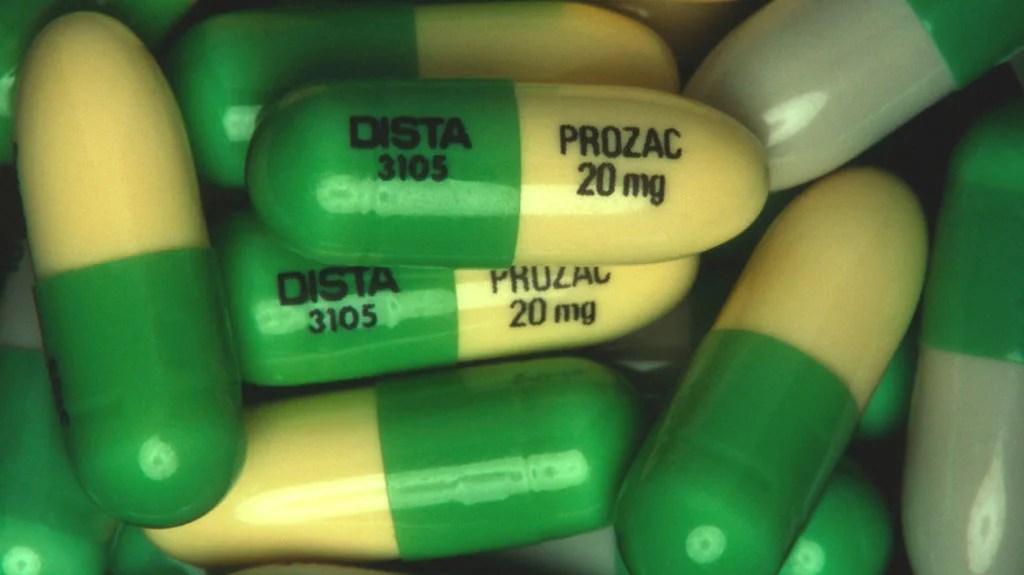
People ask me all the time, “So what’s better? Psychiatric drugs or talk therapy?” Regular visitors to this page know that ideas and thoughts are the cause of emotions and actions, and that psychiatric drugs cannot be the primary tool for correcting negative thoughts or actions. At best, they might help to “even out” emotional instability while the client works to correct misguided ideas.
Interestingly, when meds and talk therapy are combined, it’s difficult to determine which contributes more to the subject’s improvement. Many years ago, a client told me, “It’s better to swim with the current than against the current. Psychiatric medication might help me swim with the current, but if I’m going to get anywhere, I still have to swim.” And therein lies the key. Medication is secondary, and the mind must continue to think and function in order for flawed ideas to be changed. Indeed, with or without drugs, I still work together with my clients to correct misguided and false ideas.
Sadly, medication is often prescribed in an effort to bypass that process. A psychiatrist might spend five minutes with a patient, decide the patient is depressed, and prescribe medication. Often, the doctor doesn’t talk with the patient about his or her problems, and might not even refer the patient to a psychotherapist who can get a better idea of what’s going on. This conveys to the patient the false idea that medication is the first and only option.
If, in fact, drugs do “even out” emotional instability while the person takes responsibility for thinking, then the medical path is all well and good. But in almost 35 years of professional counseling, very few people have ever told me that their medication helps, and more have said that it either doesn’t help or that it makes things worse.
Sadly, all of this can lead the patient to believe that he has no responsibility for his mental functioning, and therefore no control over it; thus triggering a vicious cycle of more anxiety and/or depression. If someone simply told him that medication is, at best, a way to calm him so he can think more effectively, he would be a lot better off.
I’m not against anything — medication or whatever — that objectively helps. What I am against is the idea of biological determinism, i.e., that biology is destiny, that genetics and brain physiology determine everything about a person. If this were true, a doctor could just prescribe medication for everything; pretending that the patient’s attitudes and behaviors have nothing to do with how she feels. That sense of helplessness would be more depressing and anxiety-provoking than anything the patient was probably thinking in the first place.
People sometimes tell me, “I’m taking these pills and I’m doing better. But I’m not sure if it’s the medicine or the counseling that’s helping. Or, maybe I’m better because the problem got better.”
Psychiatric medications rarely, if ever, clear up or truly cure emotional problems the way antibiotics heal infections or a cast helps to mend a broken leg. In fact, I haven’t seen a single example of that. There are just too many variables that impact a person’s emotional situation.
The most potent factors affecting a person’s psychological state are ideas, beliefs and the actions one takes as a result of those beliefs. When all is said and done, my advice regarding medication is to take it if it helps. And, by “help,” I mean that it makes it easier to do what you ultimately need to do: To think, introspect and use your mind to reason things out – with or without a therapist. My client so many years ago said it best: “…if I’m going to get anywhere, I still have to swim.”
Follow Dr. Hurd on Facebook. Search under “Michael Hurd” (Charleston SC). Get up-to-the-minute postings, recommended articles and links, and engage in back-and-forth discussion with Dr. Hurd on topics of interest. Also follow Dr. Hurd on Twitter at @MichaelJHurd1, drmichaelhurd on Instagram, Michael Hurd Ph.D. on LinkedIn, @DrHurd on TruthSocial
Solution-focused life coaching with Dr. Hurd
